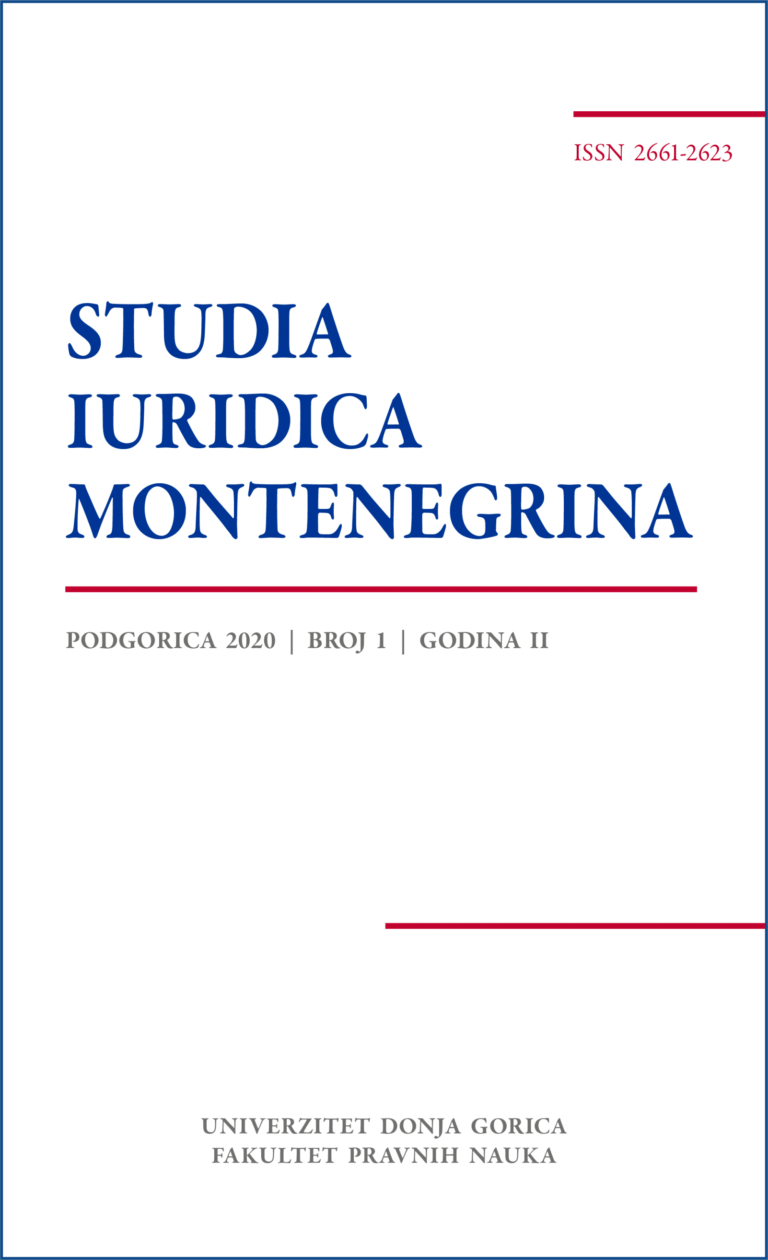O položaju države u naslednom pravu Srbije
On the position of the state in serbian inheritance law
Author(s): Dušan NikolićSubject(s): Law, Constitution, Jurisprudence
Published by: Fakultet pravnih nauka Univerziteta Donja Gorica
Keywords: nasledno pravo; zaostavština bez naslednika; država kao naslednik; održaj; Vrhovni kasacioni sud
Summary/Abstract: The Republic of Serbia may inherit a deceased person’s inheritance under the general rules applicable to testamentary inheritance, and according to what is stated in the Law on Inheritance, and under the special rules applicable to legal inheritance. The author considers that there is a discrepancy between the legislature’s principled position that the state inherits a legacy as the last legal successor (in case of bona vacantia) and a concrete normative solution. The law stipulates that when one year has elapsed from the publication of a court announcement inviting persons claiming inheritance to appear, the court shall issue a decision by which the inheritance is handed over to the Republic of Serbia for enjoyment, not as an ownwrship. The state is not inheriting at that moment. It only gains the ability to base possession From that moment, a special legal status is established. The Republic of Serbia has since been in the position of a possessor who can to acquire the ownership according to special legal rules on usucapio. Under current Law, the 90 Republic of Serbia acquires ownership of the movable things submitted within three years, and in the case of real estate, within ten years, from the opening of the inheritance. The legislator does not use the term legal inheritance, but the property law term acquisition of property. On the basis of legal terminology and a specific normative solution, it can be concluded that this is not a matter of inheritance, but of the acquisition of ownership through possession (lat. usucapio) and that it is a dislocated institute of poperty law transposed into the Law on Inheritance. The said normative solution is contrary to the public interest, since the state cannot dispose of the things from the decedent’s property for a relatively long period. During all this time, it is obliged to take care of them and to allocate certain funds for these purposes, at the expense of taxpayers and the community at large. The size of this burden and the potential problems are great, because in Serbia, whose population is one of the oldest in the world, there are a large number of old households (potential decedents) and many unsupervised and fully abandoned buildings owned by them. The paper critically analyzes the legal positions of the Supreme Court of Cassation, which holds that a successor who appears after the expiry of the above deadlines may require the State to transfer the decedent’s property to him. It also points to the ideological and ideological wanderings that exist in Southeast European countries regarding legal policy in the area of private law. The author’s opinion is that a shift in legal policy should be made. The position of the Republic of Serbia would be better if, following the model of earlier normative solutions, the Law states only and siply that a legacy without a successor becomes state (public) property.
Journal: Studia Iuridica Montenegrina
- Issue Year: II/2020
- Issue No: 1
- Page Range: 67-90
- Page Count: 24
- Language: Serbian

